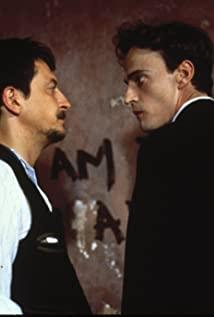Original address: http://www.qh505.com/blog/post/6100.html
I am accusing Colonel Patty of being a vicious (unwitting, I like to believe) miscarriage of justice, and employing the most absurd and reprehensible conspiracy to cover up his misdeeds over the past three years. I accuse General Messier of being complicit in one of the most injustices of the century, but at least because of his fragile mind. I charged General Björn, who had in his hands undeniable evidence of Dreyfus' innocence, but hid it. For political purposes, in order to save his colleagues in the staff who had been implicated, he committed this crime against humanity and justice. I accuse Bois-dèvre and General Conce of being complicit in the same crime, one out of no doubt clerical passion, the other probably out of making the War Ministry the invulnerable and most holy the team spirit. ... - Emile Zola, "I Complain"
This open letter with a strong back and full of justice was the most angry voice in France in 1898. It was not only Emile Zola's solidarity with Dreyfus, who had been identified as a traitor four years ago, but also to France at that time. The crusade against violent trials in the political, military, and even social circles points to the bureaucracy, to racial discrimination, and to the "silent majority" of the truth. When Zola shouted, "My fierce protest. , just a cry from my soul", when "I accuse" became a kind of civic eagerness, "In the name of humanity, let the sun shine on the tormented, and people have a right to happiness." When published The Aurora of this article was circulated on the street that Zola was not fighting alone or for the benefit of one - the "Dreyfus" case was the result of "manipulation by the majority," I accuse" is also the righteous voice of the "majority" that is not silent.
In the contest between the "majority" and the "majority", who wins and who loses seems to dominate the development of events and even determine the repositioning of French nationalism and statism, but when Zola wrote at the end: "Who dares to Summon me to court, they can try it out and let the trial take place in broad daylight!" The ending turned out to be the other way around: Zola was summoned to court by the government, and finally lost the "counter-charge" and was sentenced to one year in prison , even before the trial, the crowd shouted "Zola to die"; Zola's decision to write this article was supported by Labri's lawyer and others at the time. After this incident fermented, Labri was assassinated on the street; The shady Colonel Picault was even threatened. He suspected that the real spy, Major Esterhaji, had humiliated him in public: "Keep your honor and go find your prostitute!" And the Dreyfus case After experiencing the terrifying captivity life of "Devil's Island", the client did not immediately recover his innocence in the sound of "I accuse" - on September 9, a year later, although the Dreyfus case was retrial , But Dreyfus's treason has not been changed, but this time he was sentenced to a 10-year sentence reduction, until 7 years later, in 1906, the French Supreme Court finally acquitted him and reinstated him - from 12 December 1894 He was charged, arrested, deprived of military rank and sentenced to life imprisonment, exiled to Devil's Island thousands of miles away, and was found not guilty in 1906. For Dreyfus, these 12 years of life were undoubtedly like exile. Like Devil's Island, "On an uninhabited island, no one speaks is a form of torture."
The "I accuse" that speaks for justice, the passionate "I accuse", and the "I accuse" that points to nationalism and statism, in the end, the voice of the "majority" has become the fate of each individual, even in the Roman Polanski's reappearance ends in an almost silent way: in 1899 the Dreyfus case was retrial, Dreyfus's sentence was reduced by ten years, and "Viva France" became the first for this result. This victory expressed that Picault also seemed to usher in the dawn of victory, but when he proposed to the divorced woman Meunier, she rejected him. As a confidante who supported him in the most difficult times, Meunier has always been It was Picault's hope of getting out of the predicament, but when he refused, Meunier smiled and said, "Your heart is not suitable for marriage, let us be like before." In 1906, Dreyfus was finally sentenced to death Sin, promoted to brigadier general, he met Dreyfus who was reinstated. Dreyfus hoped to take into account the time he spent in prison, so that he could be promoted to lieutenant colonel - originally imprisoned on Devil's Island was A wrongful case, these ten years should of course be counted in the service time for him, but Picault shook his head: "It's impossible, now the environment has changed." The two stood face to face in the corridor The eyes met, it was not sympathy, but all the feelings turned into some kind of helplessness. Finally, Dreyfus said: "You have today because you did your duty." The subtitles read: "The two will never meet again later. never met."
A kind of silence, even a kind of desolation, becomes a different kind of scenery in the portrait of life that finally ushered in victory. It is not estrangement or indifference, but in the face of the almost belated judgment, everything seems to have not changed, including the skin. Like Court's love affair, it ended in "Let's Be Like We Used to Be". Whether it's Dreyfus' constant cries of "I'm innocent," or Picault's constant pursuit of the truth to prove "he's innocent," or Zola's stab at the country in "I Accused" The bureaucracy, they are the silent minority, and they overturn the verdict for Dreyfus with the silent minority, but when everything has been won in the end, why is it still shrouded in ruthlessness in the end? Why did it end in silence? Or they are still the "minority", and Roman Polanski, who used Zola's 1898 "I Complaint" as the title, is concerned with the "minority" in the event. As early as 2012, it has not been filmed. When making the film, he expressed his interest in the "few": "I have long wanted to make a film about the Dreyfus incident, not as a costume drama, but as a spy story. In this way, people can Learn its relevance to what's going on in the world today - the persecution of minorities, security paranoia, secret military courts, runaway intelligence agencies, government cover-ups and a spectacle of fanatical media."
The persecution of minorities is caused by a majority of security paranoia, secret military courts, out-of-control intelligence agencies, cover-up governments, and maddened media, and Roman Polanski’s Dreyfus case in the late nineteenth century Linked to today's world, this correlation may also be based on Polanski's personal experience, and even "I accuse" is his inner cry and anger. Facing the injustice and paranoia of "the majority", perhaps only Only in the crusade against humanity and justice can we not become silent. But Polanski finally chose to keep his breath, and sealed up history and sealed up his own experience in "the two never met again". What is the intention? Putting aside Polanski's personal demands, in fact, in the film "I Accused", rather than covering up the truth and making them the "silent majority", it is better to say that the voices created by powerful power institutions make them "the silent majority". The majority”, and the minority can only become a persecuted minority in the end.
In the film, the representatives of the minority are undoubtedly Dreyfus, the party involved in the Dreyfus case, and Picault, who eventually found a clue to overturn the case. Dreyfus was stripped of his military rank and exiled to Devil's Island. He is undoubtedly a The Silent One, even if Picault hadn't discovered the truth, his life would have been spent on an uninhabited island, and when Dreyfus faced an unfair fate, he only said one sentence in desperation: " I am innocent." But in the fate of this person, in the helplessness of a sentence, the singular world is destined to be obliterated by the plural, "Death to the Jews!" "Kill the traitors!" Arrest and sentence became a ritual, And in the square where the ceremony was held, the crowd chanted these slogans, and they became "angry people", and these angry voices represented both the country and the race, or what Dreyfus committed was the duality of the country and the nation Guilty, and these collective voices undoubtedly ruthlessly cover Dreyfus's self-justifying voice, the powerful voice of the group covering the weaker voice of the individual, like the Devil's Island on which he was exiled, an isolated island of silence. Standing above the sea, it will be engulfed by infinity at any time.
Dreyfus was exiled, and Picault became the only voice. He succeeded Colonel Sandhull and became the director of the intelligence department. It should be said that Picault was also a part of the authority, with power against power, of course. Impossible, so Colonel Picault appeared in Roman Polanski's eyes as a righteous person, and this kind of justice even represented only the individual. When he was transferred to the intelligence department, he felt a kind of mystery and strangeness. From the gate to the office, it was the strange gaze of the guards in different positions. The window of the office seemed to never be opened. Intercepting intelligence and letters was even the responsibility of the cleaners. So Picault felt strange as soon as he entered it, and he began to re-establish the system, on the one hand to understand the process of the intelligence service, on the other hand to pay more attention to the Dreyfus case - it seems that the most important clue is From his own hands: he took the intercepted package himself, and the package contained a telegram, "My contact with the R family", the telegram was sent to the address of Major Esterhaji; then Picao Te checked Esther's recent correspondence for Haji, which showed that he had just been transferred from Rouen to the General Staff in Paris; when Picot checked the letter, he found that it was very similar to Dreyfus's letter as spy evidence. Then, according to the figure, he opened the Dreyfus-related documents that had not been destroyed by Sandher and had been locked in the safe. Only through the handwriting did he discover that the handwriting so-called as evidence of Dreyfus' spy was the same as Dreyfus' original The handwriting of the letter does not match, that is to say, the real correspondent with the Germans who became their spy was actually Esterhaji.
Picault's discovery of the truth does not seem to be a difficult process. Although he is only fighting alone in the intelligence department, whether it is the doorman and the guard, or his subordinate Major Henry, he actually knows the truth and is concealing it. In the face of Court's greater power, it was easy to find clues. However, as the director of the intelligence department and a member of the power department, what really poses a threat to Picart is the entire system. At this time, Picault, who is looking for the truth, is facing the silent majority. Colonel Sandhull was Picault's incumbent, and his experience may have provided a sample of fate for Picault. When Picault visited him, Sandhull was already lying in a hospital bed. He was on the verge of death, and the words he said to Picault were: "This is no longer the France I am familiar with." The words were more disappointment, even despair. When France is no longer the France it used to be, should he be silent? ? The silence concerns these questions: Why did the superiors let Picault replace him? Why didn't he destroy Dreyfus' writing on his hands? Why didn't he dare to set up a secretary? Why does his window never open? Sandhull is undoubtedly a witness and witness to the bureaucracy, both the executioner of the Dreyfus trial and the victim of the system as a whole.
Picault also seems to have embarked on the difficult road of highlighting the dual identity of Sandher. He is convinced that Dreyfus is innocent, so he reports the truth to his superiors, but the powerful bureaucracy makes this unwilling to be silent. People became silent: he questioned Lieutenant Colonel Joel, "They are superiors, we can only carry out their orders, I don't know if Dreyfus is innocent, I don't care, if you let me kill I will go, if you later Saying that I killed the wrong one, I will be sad"; the superior will show the secret document and the contrasting letter to compare the font, the admiral's first reaction is: "It should have been destroyed a long time ago, you should not come to me first, I don't want a second Dreyfus case." When he reported the case to General Cons, Cons warned: "Forget it, the Dreyfus case is over, you don't say No one knows, this is the duty of the military!" Not being disclosed is not a right that Picot can choose, but an order - from subordinates to superiors, it seems that everyone is silent, everyone is avoiding the truth, and as a A member of this system, Picault could not presume to be a speaker.
But Picault refused to give up. One stone stirred up a thousand waves. As a righteous individual, he was suppressed by the system. He was even finally dismissed for violating the State Secret Law. After being questioned, he was transferred from his position. Far away in Paris, then on to Africa, while Picault's house was raided, he was even watched - and like Dreyfus' Devil's Island, Picault seemed to have been exiled by this authority, and Exile may have given him the opportunity to speak out, and it was precisely because he did not want to be a silent person forever. In the apartment of lawyer Labree, Picault, who "must spread this matter", finally appeared in front of Zola and others. Make this injustice public. The silent finally ceased to be silent, but when Zola was sentenced to prison, when Labri was assassinated, when the Dreyfus case was retrial, the charge of treason was still maintained, and even the group of "Viva France" was heard inside and outside the courtroom Sexual slogans, they are still the silent minority, still drowned out in the sound made by the silent majority becoming the silent majority.
Even, just as Picault stumbled across clues only as a just individual, the eventual reversal of the case seems to be an individual accident. One day in March 1898, Picault and Henry had a fencing match. Henry was stabbed in the right arm by Picault. This time, the purely recreational fencing game turned into a drama for Roman Polanski. The important event of the reversal, perhaps the fact that Picault's sword represents justice, the stab and the wound opened up Henry's heart of repentance, and a few days later the news was that Henry had confessed to what he had done in the Dreyfus case. Perjury; then, Henry commits suicide in prison - as charges against Picault are dropped, the Dreyfus case comes to the fore in Henry's confession and suicide. If Henry remains a secret, it means that the silent minority will end up being silent among security paranoia, secret military courts, out-of-control intelligence agencies, cover-up governments, and maddened media, and the Dreyfus case is no longer the case. No possibility of being overturned.
Is history an accident? Roman Polanski doesn't seem to want to keep personal fate in this contingency theory, but whether it's Picault or Dreyfus, or even Sandher and Henry, it seems to be in this "I accuse" story Li became a fatalist in Polanski's eyes. In the face of such a fate, the persecution of minorities seemed to be a helpless sigh, so Sandher sighed alone in the hospital bed: "This is no longer the France I am familiar with. ." So Mannier rejected Picault's proposal and said, "Your heart is not suitable for marriage." So Picault said to Dreyfus, who had been innocent, "Now the circumstances have changed." Perhaps, for an individual In other words, "I accuse" is the most human resistance. Loyalty to duty is the last not to be silent. They will become Zola's last words in his heart: "I am waiting." - Polanski is also Waiting for your innocence?
View more about An Officer and a Spy reviews










